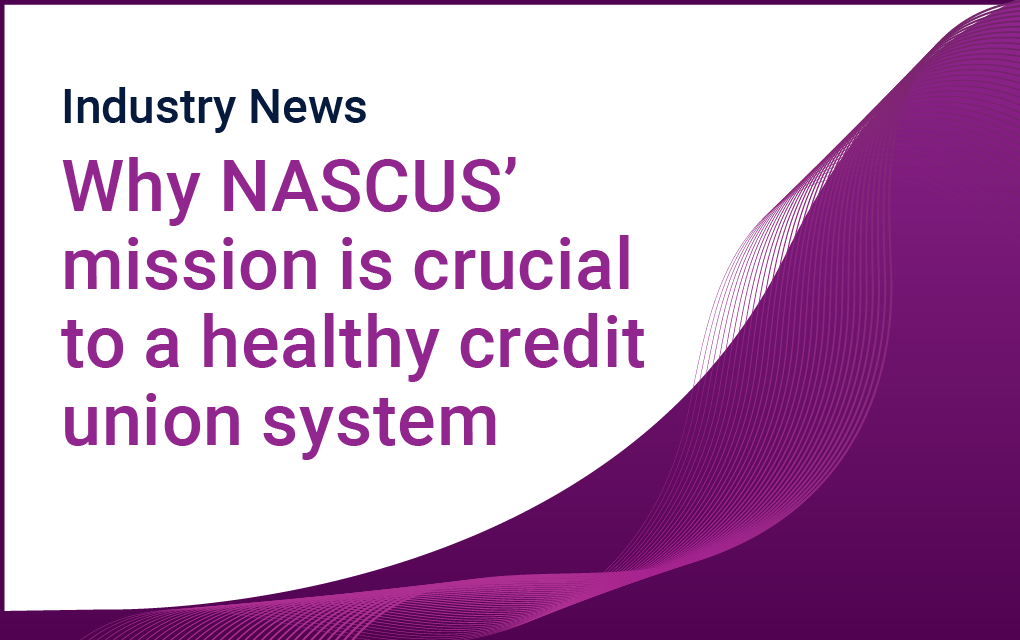INDUSTRY NEWS
Why isn’t the NCUA chartering more de novos?
The regulator has approved only three new federal charters this year and just 29 in the past ten years.
The number of credit unions in the U.S. continues to shrink, and few new organizations are entering the landscape to replace those that merged or closed.
Case in point: There were 4,604 federally insured credit unions as of Dec. 31, 2023, compared to 4,760 a year earlier.
Meanwhile, the National Credit Union Administration chartered only three credit unions last year, and since 2014 the regulator has only chartered 29 new credit unions.
The NCUA has recognized the various problems involved with getting new organizations chartered and tried to address some of those by rolling out a provisional charter.
Historically, groups interested in organizing new credit unions had to find a way to raise the capital required to implement their business plans before they could obtain a charter. But, in many cases, investors that provide the capital have been hesitant to make a firm commitment until an organization had an approved credit union charter in hand.
So the NCUA rolled out the provisional charter – an option in situations where the charter is the last piece a group needs to finalize its capital requirements.
Under the program, the credit union organizers would provide a capital funding plan and agree to secure the necessary funding commitments within 12 months.
However, a provisional charter does not authorize a credit union to accept member deposits or originate loans until the credit union obtains its targeted level of donated capital.
“We’re just over two years into this program, but there is not a lot of transparency about how this is going, whether the NCUA sees this program as having potential to become permanent.”
– Brandy Bruyere
Partner
Honigman Law Firm
So is it working?
Not yet.
“The provisional charter has a lot of potential, but there is still some work to do and too few have been issued to say whether this could be effective,” Brandy Bruyere, a partner at the law firm Honigman in Washington D.C., told Tyfone. “The agency is only considering a few of these provisional charters as part of this ongoing pilot, and in de novos we’ve worked with, there has not been any clear option to pursue the provisional pathway.”
Bruyere said provisional charters could be an important tool that would allow new credit unions to have the access to capital needed to grow at a better pace.
Currently, a de novo has to rely only on donations for capital to get the credit union both chartered then up and running, as a charter is required to access other tools like subordinated debt.
“We’re just over two years into this program, but there is not a lot of transparency about how this is going, whether the NCUA sees this program as having potential to become permanent,” Bruyere said.
For example, no provisional charter regulation has appeared on the agency’s rulemaking agenda. Bruyere said that could be because the agency wants more data on how the first few provisional charters perform in their first year or two before making any final determinations.
The NCUA has chartered just three new credit unions this year, with two of those under the provisional charter.
Most recently, the agency in June chartered Fair Break Federal Credit Union in Memphis, Tennessee.
Fair Break is a low-income-designated credit union primarily serving people who live, work, worship, or attend school in the Memphis-Clarksdale-Forrest City, TN-MS-AR combined statistical area as well as serving those participating in programs to alleviate poverty or distress in the community.
Prior to that, the NCUA granted a provisional charter to Tribe Federal Credit Union in Minneapolis, Minnesota.
Tribe is a low-income-designated credit union primarily serving people who live, work, worship, or attend school in Minneapolis as well as serving those participating in programs to alleviate poverty or distress in the city.
The NCUA in March granted a “traditional” federal charter and share insurance fund coverage to New Jersey State PBA Federal Credit Union in Woodbridge, New Jersey.
Sam Brownell, founder of the consultancy CU Collaborate, told Tyfone the provisional charter is “progress” on the NCUA’s part.
“I really like the idea,” he said. “I think the credit union movement needs to come together to help de novos utilize provisional charters to the fullest potential.”
But Bruyere said the situation could get more complicated with agency statutory interpretations no longer receiving deference if challenged in court. That ruling could impact how the NCUA decides to proceed as well to the extent there is risk that any parties may object to the process from a competitiveness perspective, she said.
NCUA board member Kyle Hauptman recently posted on his LinkedIn account that any new charter applicants who are having any problems can reach out to him directly, because “the NCUA owes you clear, explicit guidelines & timeframes,” which Bruyere believes indicates that there are still issues in that area despite increased staffing dedicated to reviewing new charter applications.
But it is not only the NCUA handing out charters. Some organizations take the state-chartered route, including Arise Community Credit Union, which was chartered by the state of Minnesota in March.
It is the first new state-chartered credit union chartered in 23 years in Minnesota and the first Black-led credit union in the history of the state.
Another potential de novo has been trying to get off the ground for eight years.
That effort involves a group of students at George Washington University that wants to open an entirely student-run credit union.
Former Illinois and NCUA regulator Chip Filson has been trying to help get the credit union chartered, but he said it has made little progress.
“I think the NCUA confuses process with results,” he said. “If staff were focused on results, there would be more charters.”
Why Is This Relevant?
At Tyfone, we believe that a healthy credit union system requires a steady flow of “new blood” in the form of new institutions. Mergers and closures continue to shrink the total number of credit unions, and that needs to be offset with the formation of new organizations. We stand ready to serve the organizers of the group at George Washington University when they are awarded a charter.








